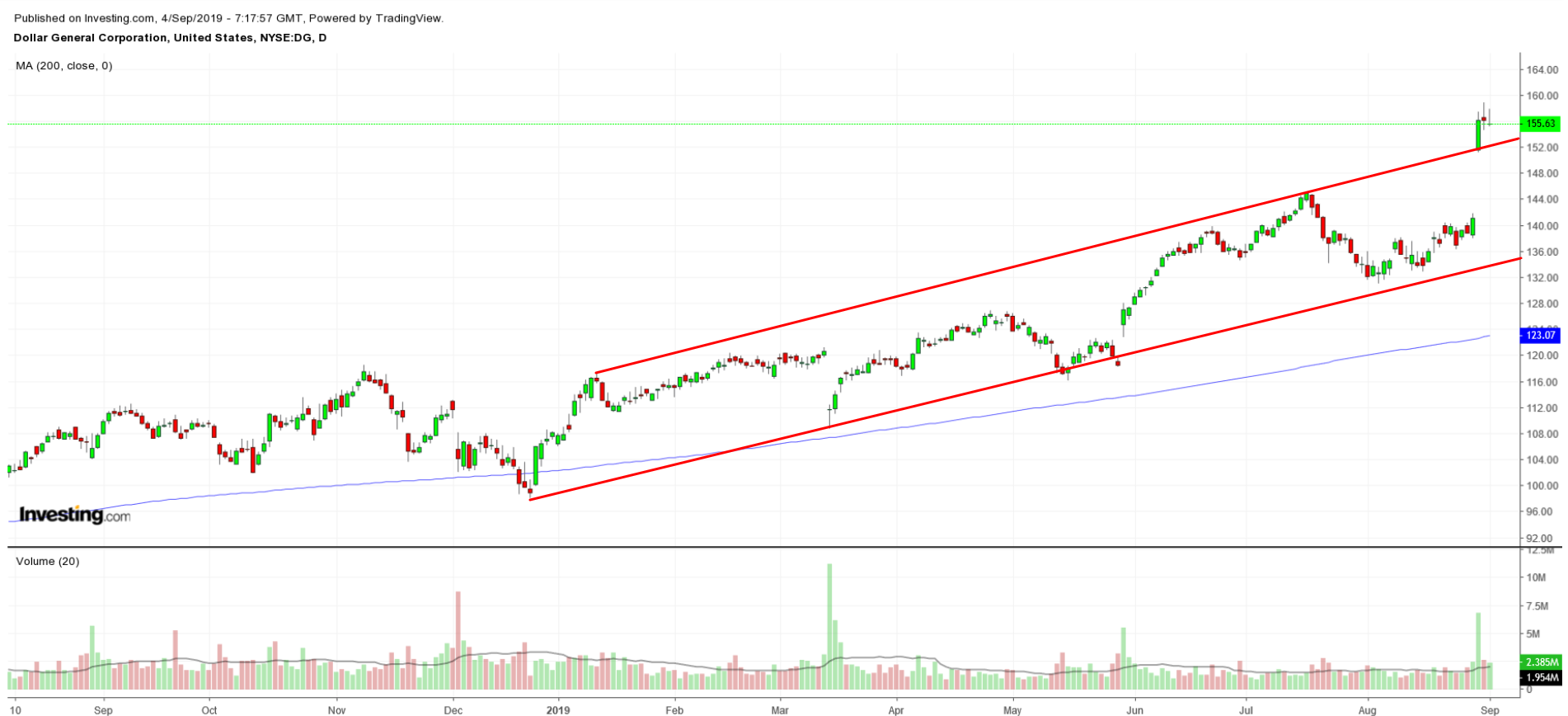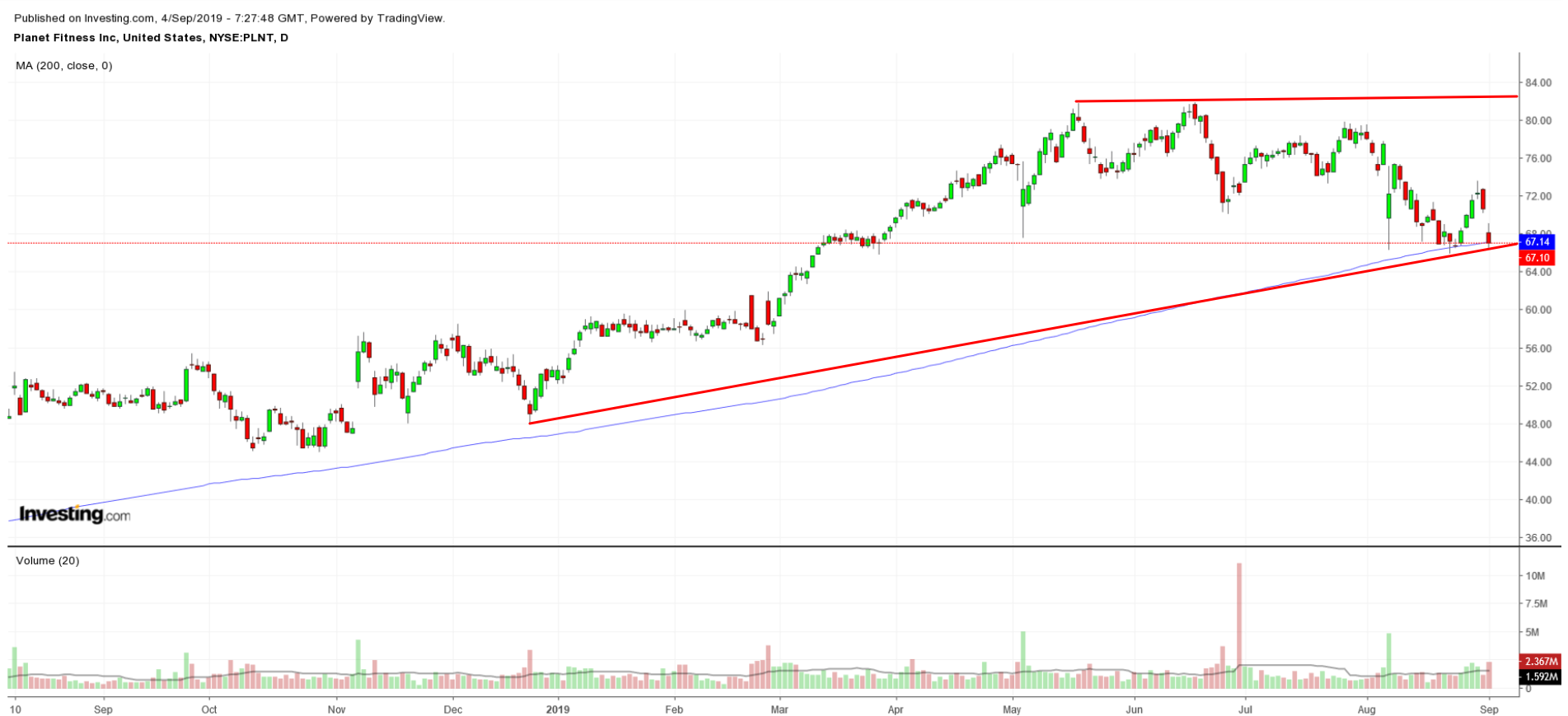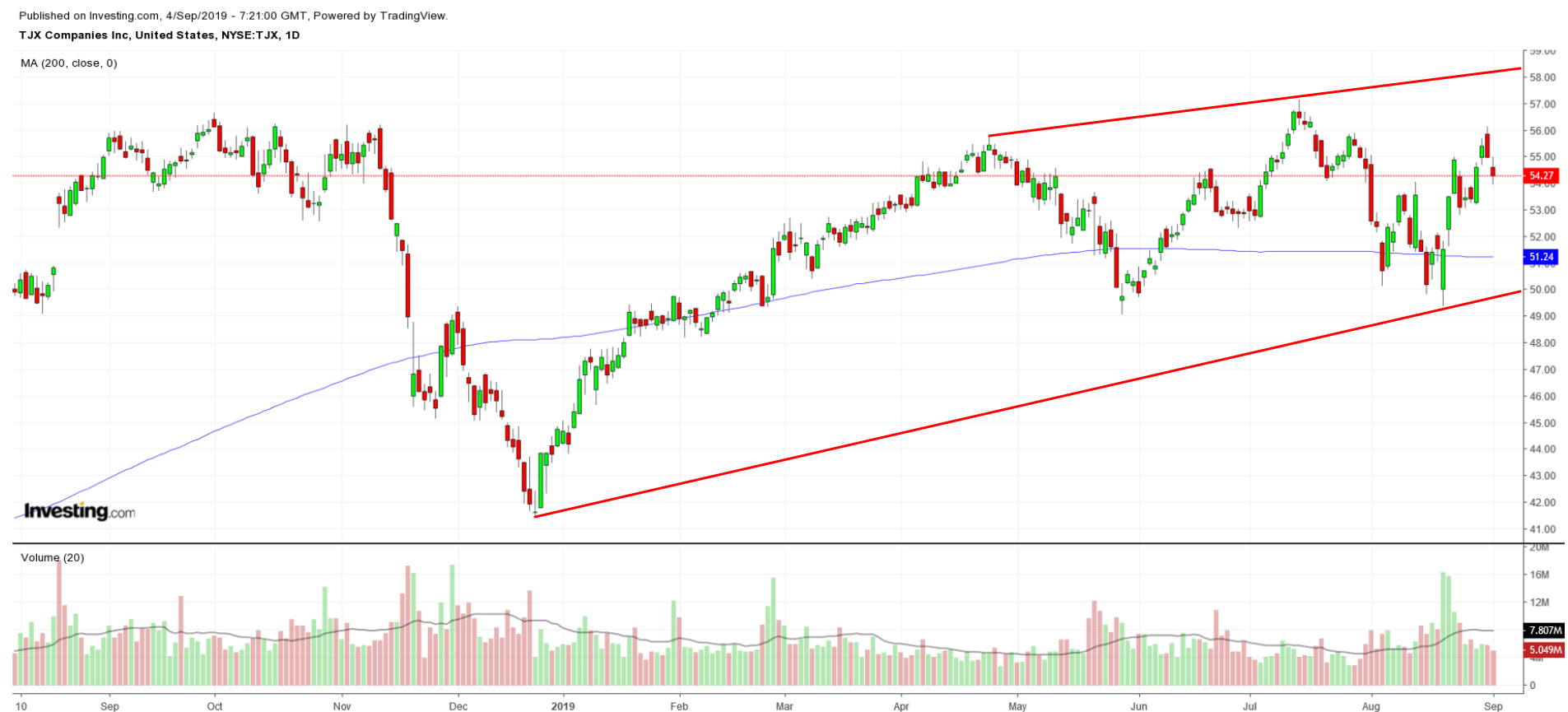Signs of an upcoming economic recession continue to build. Just yesterday, the U.S. ISM manufacturing release showed the sector contracted in August, the first time this has happened in over three years. As well, underlying worries about a weakening economy, plus the U.S.-China trade war—now entering its second year—continue to weigh on markets and economic activity.
Meanwhile, the yield on the benchmark U.S. 10-year Treasury note keeps slipping and, since August, has repeatedly inverted below the 2-year rate—a bond market phenomenon that has historically preceded recessions.
Still, even if a downturn were to occur, there are a wide range of stocks available to help boost your portfolio. In our view, the three names below present a buying opportunity should the U.S. economy slide into a recession.
1. Dollar General: Recession-Proof Discount Retailer
Shares of Dollar General (NYSE:DG), the largest discount retailer in the U.S., are up nearly 44% this year. The stock closed at $155.63 on Tuesday, within sight of an all-time high of $158.90 touched on August 30, giving it a market cap of $40 billion.
The company's recession-proof status makes sense. After all, when money becomes tight, consumers tend to look for thriftier-priced shopping alternatives, a sweetspot for discount retailers.
Dollar General, which operates more than 15,000 stores in 44 states, mostly sells groceries, household supplies and personal care products at rock-bottom prices. It has publicly described their core customers as households earning less than $35,000.

The Goodlettsville, Tenn.-based chain posted surprisingly strong second quarter results on August 29, despite rising tariffs on goods it imports from China.
Dollar General reported earnings per share of $1.74, beating EPS expectations of $1.57. Sales in the quarter totaled $6.98 billion, up more than 8% from the same period a year earlier, and just ahead of forecasts for revenue of $6.89 billion.
Same-store sales, a key metric in retail, which measures store-by-store sales performance, rose 4%, surpassing expectations for a 2.5% gain.
The strong results prompted the retailer to raise its full-year fiscal 2019 guidance. It now expects sales growth of 8%, up from prior guidance of 7%, and same-store sales growth in the low-to-mid 3% range, compared to previous expectations of approximately 2.5%.
2. Planet Fitness: Low-Fee Health Club Chain
As evidence starts to mount that the U.S. economy is hitting a soft patch, Planet Fitness (NYSE:PLNT) should also be on your radar. The fitness center operator, which offers $10 membership options, now has 14 million subscribers across 1,859 locations, making it one of the largest U.S. fitness club franchises by number of members and locations.
Planet Fitness' membership-based business, which is driven by low monthly fees, makes it one of the top recession-proof names to consider. The company is also likely to benefit from its lack of exposure to China, which makes it less at risk from the U.S.-China trade war.
Shares of Planet Fitness, which have gained almost 25% since the start of 2019, ended at $67.08 last night, giving it a market cap of $6.18 billion.

The Hampton, New Hampshire-based company easily beat estimates on both the top and bottom lines when it released earnings for its fiscal second quarter on August 6. Earnings per share totaled $0.45 in the quarter ended June 30, surpassing expectations for EPS of $0.41 and up from $0.34 in the same period a year earlier. Revenue surged 29.3% to $181.6 million, surpassing forecasts of $167.8 million.
The strong quarterly results were driven by an 8.8% jump in same-store sales growth.
The company also boosted its full-year earnings and sales outlook. It now expects earnings per share to jump 26% for the full year, while revenue is forecast to rise 18%, up from prior guidance of a 25% increase in EPS and a 15% gain in sales.
3. TJX Companies: Off-Price Retailer
The final name to consider is another the retail sector denizen. Off-price retailer TJX Companies (NYSE:TJX), which owns T.J. Maxx, Marshalls, and Home Goods brands, is likely to benefit from an economic downturn as consumers migrate to discount retailers as spending contracts.
The price-conscious chain, which operates a total of 4,412 stores in nine countries, including the U.S., Canada, the UK, Ireland, Germany, Austria, the Netherlands, Poland and Australia, offers a wide selection of well-known designer brands at a deep discount, providing consumers with what management calls "a treasure hunt” shopping experience.
The stock, which settled at $54.28 last night, has gained nearly 21% in 2019, giving it a market cap of $65.5 billion.

The Framingham, Mass.-based discount clothing and home decor chain reported second-quarter earnings per share of $0.62 on August 20, matching expectations. Revenue climbed to $9.78 billion, up 5% from the $9.33 billion it brought in during the same period a year earlier.
Comparable sales rose 2%, thanks to a ramp-up in foot traffic at its T.J. Maxx and Marmaxx-branded stores. The company also enjoyed same-store sales growth of 1% at its TJX Canada segment and 6% at TJX International.
"This quarter marks the 20th straight quarter of customer traffic increases at T.J. Maxx and Marmaxx," CEO Ernie Herrman said in a statement. "This speaks to the consistency and fundamental strength of our treasure-hunt shopping experience through many types of retail and economic environments."
